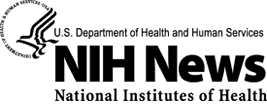Last updated: July 31, 2012
NHGRI Launches Online Genomics Center For Educators of Nurses, Physician Assistants

NHGRI Launches Online Genomics Center For Educators of Nurses, Physician Assistants
Bethesda, Md., Fri., Feb. 26, 2010 — An online tool to help educators teach the next generation of nurses and physician assistants about genetics and genomics was launched today by the National Human Genome Research Institute (NHGRI), part of the National Institutes of Health. The tool is part of NHGRI's effort to address the growing need among health care professionals for knowledge in this area, which is paving the way for more individualized approaches to detect, treat and prevent many diseases.The Genetics/Genomics Competency Center (G2C2), developed by the University of Virginia in Charlottesville through a contract with NHGRI, is a free, Web-based collection of materials on genetics and genomics designed for educators who train nurses and physician assistants. To access this resource, visit www.g-2-c-2.org.
"As we enter the era of personalized medicine, establishing genetic and genomic literacy is an urgent concern for those who educate health professionals. This online resource will provide a valuable new tool for meeting that challenge," said Jean Jenkins, R.N., Ph.D., NHGRI senior clinical advisor to the director. "In the future, we hope to expand this tool to include other health care professions, such as pharmacists and physicians."
Dr. Jenkins announced the new resource at the 2010 American Association of Colleges of Nursing (AACN) Master's Education Conference in New Orleans.
Nursing and physician assistant educators can use the Genetics/Genomics Competency Center to find and download materials for use in their classrooms. They also can share their favorite genomic and genetic teaching resources and materials with other educators by uploading material, which is regularly reviewed by the center's editorial board to ensure quality control.
The Genetics/Genomics Competency Center was created under the guidance of an advisory group made up of representatives from a wide range of research and professional organizations. In addition to AACN, participating organizations included the American Academy of Physician Assistants, National Cancer Institute, National Coalition for Health Professional Education in Genetics, National League for Nursing, National Society of Genetic Counselors, Physician Assistant Education Association and Sigma Theta Tau International, the honor society of nursing.
"We're very excited that physician assistants were included in this pioneering effort. Our profession has been at the vanguard of realizing the importance of genetics and genomics in the future of medicine, and encouraging efforts to incorporate more of these key concepts into education and training," said physician assistant Michael Rackover, M.S., an advisory group member who directs the physician assistant program at Philadelphia University.
To encourage sharing and reduce duplication across health care disciplines, the Genetics/Genomics Competency Center helps to match existing educational resources with educational competencies for health professionals. The online center accomplishes this through sophisticated, cross-mapping of learning activities and assessments, outcome indicators and professional competencies, such as Genomics Nursing: Competencies, Curricula Guidelines and Outcome Indicators![]() , and similar guidelines for physician assistant education, Establishing Essential Physician Assistant Clinical Competencies Guidelines for Genetics and Genomics [paeaonlin.org].
, and similar guidelines for physician assistant education, Establishing Essential Physician Assistant Clinical Competencies Guidelines for Genetics and Genomics [paeaonlin.org].
NHGRI's Genomic Healthcare Branch will host a webinar this spring to provide educators with a tutorial on using the tool and answer questions about the resource.
NHGRI supports the development of resources and technology that will accelerate genome research and its application to human health. For more about NHGRI, visit www.genome.gov.
The National Institutes of Health — "The Nation's Medical Research Agency" — includes 27 institutes and centers, and is a component of the U.S. Department of Health and Human Services. It is the primary federal agency for conducting and supporting basic, clinical and translational medical research, and it investigates the causes, treatments and cures for both common and rare diseases. For more, visit www.nih.gov.
To view the PDF document(s) on this page, you will need Adobe Reader. ![]()
Contact
Omar McCrimmon, NHGRI
301-402-0911
mccrimmono@mail.nih.gov

